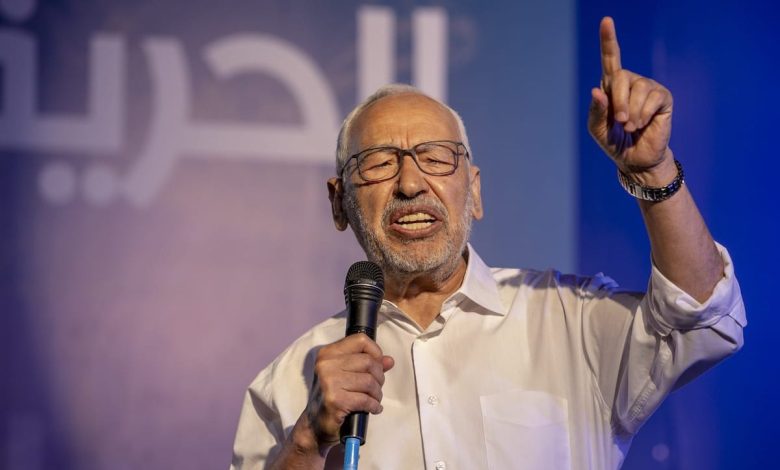Tunisia: Retired Admiral reveals serious facts about Ennahdha’s plans

In controversial statements that revealed the plans of the Ennahdha Movement in Tunisia, the retired Admiral Kamal Al Akrout revealed a number of facts related to the plans of the Ennahdha Movement, including the penetration of sovereign institutions, especially the security and military institutions, despite the fact that the movement, which was previously accused of penetrating the Ministries of Interior and Defense, carrying out political assassinations and trying to integrate society, does not miss any opportunity to confirm that it did not seek to penetrate these institutions, and that the talk is nothing but part of a campaign launched by its opponents on a continuous basis.
Al-Akrout, who served as the first national security adviser to the late President Beji Caid Essebsi, spoke of putting pressure on the military establishment to accept its “Islamization” by accepting the wearing of alcohol conscripts and opening mosques in barracks. He considered this to be contrary to the nature of the institution, which requires a uniform, especially as it rejects any attempts to penetrate through the gate of dress or other.
Al-Akrout said there were women who wanted to wear the hijab and asked them to sign their resignation document. They did not claim the costs of their training, so they refused and chose to stay.
In remarks to Tunisian radio station IFM about Ennahdha’s taking over of the government, Al-Akrout said that the head of the movement, Rached Ghannouchi, came up with destructive ideological ideas for “a civil state built on the foundations of women’s freedom and independence, and wanted to overthrow all of it, and he lived in England.”
Ghannouchi did great harm to the country, especially when he became president of the parliament, al-Akrout said, adding that even if he reviews, the head of Ennahdha will not be able to rest.
Al-Akrout said that during his tenure as Director General of Intelligence, he tried hard to distance the military institution from political tensions, which caused his dismissal from his duties. “We wanted the military institution to be away from political intrigue, so I was expelled,” he said.
The late (President Beji Caid Essebsi) appointed him as a security adviser in Carthage after some services he performed in Nidaa Tounes. He does not have the minimum requirements for leadership, as he is a war killer, and his star is not at peace.”
For her part, leading member of the Ennahdha Movement, Yamina Zoghlami, denied these statements, saying that they are untrue, and an attempt by Al-Akarot to create fake championships, pointing out that the movement does not interfere in people’s clothing, and this is part of the freedoms.
This is not the first time that Ennahdha has been criticized by its opponents for trying to infiltrate state institutions, and the Brotherhood rejects these charges, saying they have no clear evidence and are part of the political struggle.
Despite many attempts to penetrate it, the Tunisian military institution has for decades succeeded in maintaining its neutrality. Observers confirm that the Tunisian army operates within the framework of the law and within the applicable state arrangements, and that its loyalty is to the homeland and not to individuals. It cannot be involved in political bias, but rather it is committed to respecting the application of republican decisions as required by the country’s constitution and law.












